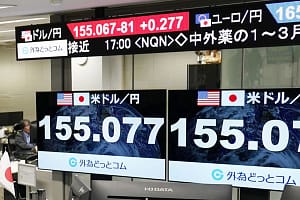Back in 2013, the Texas-based founder and manager of the Hayman Capital hedge fund, Kyle Bass, gave an interview in which he tersely stated, ‘I would buy gold in yen and go to sleep for ten years.’
That thesis is starting to play out quite spectacularly and Western central bankers, economists and investors need to pay attention.
The Bank of Japan, and the yen, may be test cases for the view that central banks are in a corner of their own making after over a decade of experimental policy: either tighten to tackle inflation only for indebted economies and leveraged financial markets turn turtle, or do nothing and see inflation do the damage instead.”
“No wonder gold bugs are waiting in the wings, even if Mr Bass’ theory is taking a long time to play out. Gold did nothing in yen for six years, but it has since advanced by 70% in the next three (or, in other words, the yen has lost 70% of its value relative to gold over that time frame),” ,” says AJ Bell Investment Director Russ Mould.
“The case for short yen/long gold as based upon tattered state of Japan’s public finances, the country’s weak demographics and how the Bank of Japan had got itself into trap whereby any attempt to tighten monetary policy would only lead to an economic slowdown and – in turn – lower interest rates and more money creation via Quantitative Easing.
“This is the very issue that is nagging away right now at the US Federal Reserve and the Bank of England after their latest interest rate rises.
“Both Federal Reserve chair Jay Powell and Bank of England Governor Andrew Bailey accompanied policy tightening with less aggressive language than expected, as both try to balance fighting inflation on one hand with not tipping their respective economies into a slowdown or even a recession on the other.
“Government bond yields are rising faster than headline interest rates in both the US and UK. That may serve one purpose, by doing the monetary authorities’ job for them, but they will not want to see bond yields gallop too far, as the higher borrowing costs they entail could put a crimp on economic activity (and also prompt a shift in sentiment in stock markets for good measure, if bond yields start to look attractive relative to those on offer from equities).
“What is intriguing about Japan right now is how Japanese Government Bond (JGB) bond yields are rising but the yen is still falling. The Japanese currency stands at almost ¥131 to the dollar, a mark last seen in 2002.”





Leave a Comment